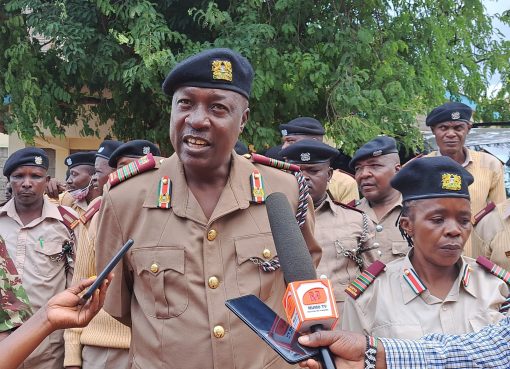The Teachers Service Commission (TSC) has called for the strengthening of guidance and counselling departments in schools to curb indiscipline and help learners to cope with their emotions.
The Commission has expressed concern that the guidance and counselling departments in most Kenyan primary and secondary schools are being treated as peripheral to the core curriculum, with little time, and other resources allocated to its activities.
Nakuru County TSC Deputy Director Margaret Amateshe indicated that unlike other departments like curriculum, languages, humanities, sciences or games, the guidance and counselling department is underrated, mishandled and misunderstood.
She said that while schools invest in games and sports to gain fame and win prizes, the guidance and counselling department remains only to be seen in school magazines and mentioned in staff meetings.
Speaking at the Regional Commissioner’s plenary hall in Nakuru during the launch of a report dubbed ‘Assessment of Life Skills and Values in East Africa,’ Amateshe further observed that the thirst for good grades has wiped out its crucial role as school timetables have been portioned with class work from dawn to dusk, that teachers utilize in completing the syllabus instead.
While noting that some schools have more than 2,000 learners with only 1 guidance and counselling teacher, Ms Amateshe suggested that the department in every school be manned by at least three teachers trained as counsellors and who are updated on the challenges of the modern learners, through appraisal or continuous training.
She explained that unlike the teaching role, a guidance and counselling teacher is trained to be empathetic and caring, characteristics which the Deputy Director noted contrast the role of admonishing and punishing.
The report, themed ‘Do our Children Have Life Skills and Values’ and compiled by Zizi Afrique in collaboration with Regional Education Learning Initiative (RELI) analyzed 17,276 learners in Nakuru County.
The Deputy Director indicated that the place of guidance and counselling should be centred as core to the learning process and allocated more physical and curriculum space.
She added; “In most instances learners with counselling challenges are counselled outside the learning hours, such as tea-break, lunch break or games time. The teachers in some of these schools still teach a full load and hence become exhausted with the mainstream curriculum functions, delivery, and assessment, with little time for their counselling roles, which become peripheral.”
According to Amateshe in a functioning system, specific counselling schedules should be included in the school timetable.
The Deputy Director stated that the department should be furnished with adequate resources and infrastructure such as offices and counselling clinics.
“Learners need a friendly face that will listen to them and they’ll be guided. In many instances, counselling takes place in odd spaces such as in the laboratory, Deputy Principal’s offices, games stores, or even under trees out in the open field! The unavailable space is problematic because it denies the much-needed privacy as core to effective counselling,” she observed.
According to Zizi Afrique coordinator Mr Christopher Kung’a 6 percent of learners analyzed in Nakuru were found to be proficient in problem solving, 9 percent were proficient in self-awareness while 10 percent exhibited good respect.
Quality Assurance and Standards Officer from the Ministry of Education Lilian Achode observed that guidance and counselling in most schools was reactive.
For example, she elaborated that in some schools, the guidance and counselling teachers only got involved when cases of alcohol and drugs use had been noted or when students have been caught with either alcohol or drugs.
She stated that learners often failed to open up during counselling sessions because they didn’t trust their teachers.
Achode said, “Lack of privacy also hinders students from full disclosure during the sessions. Offices used by the guidance and counselling teachers are not conducive for sharing sensitive information. In the end, support is limited or inadequate due to lack of full disclosure. Teachers should establish a good rapport with students,”
She went on, “Counselling teachers need to give each child individual attention according to his/her needs, but they have very little time to offer guidance because, teachers and students are using up all free time to cover the syllabus.”
She said there are very few training opportunities for counselling teachers and the resources available to the departments are minimal.
“We would like all stakeholders to recognize the role of the counselling departments in schools,” she stated.
Achode further recommended a mentoring initiative that targets every learner which she said can be a game changer.
“Mentoring is a continuous process that makes learning an interesting endeavour aimed at acquiring skills from a knowledgeable individual. It helps a student to develop pivotal habits for a successful school life and ignites a spark towards a career,” she pointed out.
Achode said a well-thought out mentoring programme can enable students to make a seamless transition from primary to secondary school and inculcate new mind-sets. This will challenge them to make optimal use of time in a setting of meagre resources.
By Anne Mwale





